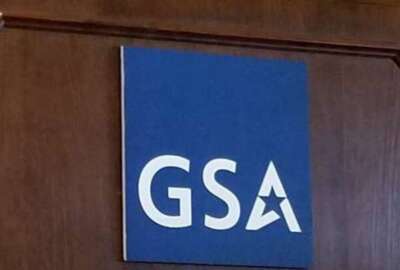GSA kicks off 3rd generation of strategic sourcing for office supplies
GSA issued a draft solicitation for the Office supplies 3 indefinite delivery, indefinite quantity contract Nov. 25 that puts more emphasis on small businesses,...
wfedstaff | April 17, 2015 5:53 pm
This story was updated Dec. 4, 2013, at 11 a.m., to add new information.
The General Services Administration wants to refine its approach to the strategic sourcing of office supplies. GSA issued a draft solicitation for the Office Supplies 3 indefinite delivery, indefinite quantity contract Nov. 25 that puts more emphasis on small businesses, including consortiums, and would not be based on Schedule special item numbers.
The draft request for proposal comes more than three years after GSA awarded 15 companies a spot on OS2. The second generation BPA has been moderately successful. GSA reports on StrategicSourcing.gov that in fiscal 2013 agencies saved $48.6 million on office supplies, and spent more than $246 million through the BPA.
GSA stated in June 2010 that agencies could save $52 million through the contract.
GSA expects to make more than 20 awards under the potential five-year contract that could be worth $1.25 billion over its life. GSA is in the process of developing a list of agencies that will commit to using the OS3 BPA. GSA estimated agencies spend more than $1.4 billion on office supplies each year.
“Additionally, in recognition of the fact that the vast majority of agencies are unable to commit obligated funding to this agreement due to the decentralized funding sources and the prevalence of purchase card transactions, numerous agencies have decided to express their commitment to utilize the resultant OS3 contracts through a formal memorandum from senior management,” the draft RFP stated.
Instead of pools of contractors under OS2, GSA decided to build the contract around the contract line item numbers (CLINs).
- CLIN 1 is exclusively for small businesses to provide a full catalog of office supplies. GSA said it plans to award 14 contracts, including at least two to small disadvantaged veteran-owned small businesses.
- CLIN 2 is for paper and will be set-aside for small disadvantaged veteran owned small businesses. GSA expects to make three awards.
- CCLIN 3 is for toner/ink cartidges and also will be set-aside for small disadvantaged veteran owned small businesses. GSA expects to make three awards under this category as well.
- CLIN 4 is open to both large and small businesses, including consortiums, to offer their full catalog of office supplies with a focus on same-day and expedited deliveries. GSA said it expects vendors with existing brick-and-mortar operations that serve metro areas to bid on this category. GSA didn’t say how many awards it planned to make under this category.
In addition to these four CLINs, GSA will issue a separate RFP for its Supply Transformation Program to acquire a catalog of commercially available office supplies that comply with the Trade Agreements Act and the AbilityOne program.
This is a significant change from OS2 when vendors had to comply with both TAA, which requires agencies to buy only from those countries that meet certain conditions, and AbilityOne, which hires people with physical or mental disabilities to manufacture products and provide services. Under OS3, vendors still must comply with AbilityOne and TAA.
GSA said it estimated the supply transformation program would have an annual value of $250 million, or the same $1.25 billion over five years.
The agency said it expects OS3 to save the government $65 million annually on administrative costs and an additional $90 million in annual savings captured through lower prices.
Comments on the draft RFP are due by Dec. 6, and the agency will host an industry day Dec. 10.
GSA said it expects to issue the final RFP in the first quarter of 2014.
There’s growing concern over the use of strategic sourcing and its impact on small business.
The House Small Business Committee has held several hearings over the last few years on strategic sourcing, including one in June where lawmakers pressed GSA and Office of Federal Procurement Policy officials about whether they would make the strategic sourcing contracts mandatory.
“I’m not convinced that the draft Office Supply 3 (OS3) Request for Proposals issued for the purchasing channel will deliver significant or sustainable savings,” said Rep. Sam Graves (R-Mo.), chairman of the Small Business Committee, in an emailed statement. “This contract could be detrimental for the GSA Office Supply Schedule Contract (Schedule 75), which has been beneficial for small businesses and taxpayers. While a few small businesses will do very well under OS3, hundreds of small businesses will lose the opportunity to compete for federal contracts, and the government won’t achieve significant additional savings. If this is the vision of strategic sourcing that the administration is embracing, taxpayers and small businesses should be greatly concerned.”
Sam Bornstein, a professor of accounting and taxation at Kean University in Union, N.J., and a partner with the firm Bornstein and Song CPAs and Consultants, has been studying the impact of strategic sourcing on small businesses.
In October, Bornstein issued findings that showed the more than 550 Schedule 75 vendors who didn’t win a spot on OS2 “suffered nearly an average 60 percent loss of GSA sales, while the 15 FSSI BPAs ‘winners’ reaped an average increase in GSA sales of almost 145 percent.”
At the same time, however, the Government Accountability Office found in October 2012 agencies were ignoring billions of dollars in savings from buying more strategically.
RELATED STORIES:
GSA’s office supply contract causes concern
Lawmakers, industry press OFPP not to make strategic sourcing mandatory
Strategic sourcing: Pennywise but pound foolish?
Agencies ignoring billions in savings from strategic sourcing
Copyright © 2025 Federal News Network. All rights reserved. This website is not intended for users located within the European Economic Area.
Jason Miller is executive editor of Federal News Network and directs news coverage on the people, policy and programs of the federal government.
Follow @jmillerWFED






